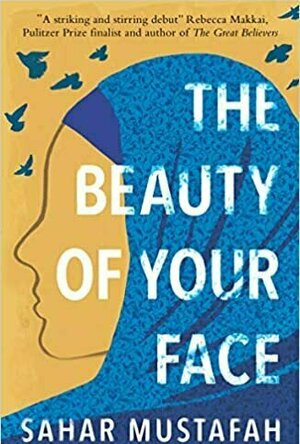Search
Search results
Melanie Caldicott (6 KP) rated The Beauty of Your Face in Books
Apr 29, 2021
You can also read my review at my blog - roamingthroughbooks@wordpress.com" rel="nofollow noopener" target="_blank">https://roamingthroughbooks@wordpress.com
The Beauty of Your Face by Sahar Mustafah is a poignantly written story of a Muslim Palestinian family living in America which challenges stereotypes and prejudice through rich characterisation and a moving plotline.
The novel follows the life of Afaf Rahman, beginning at the nail-biting attack of a white extremist at the Muslim high-school of which Afaf is principal. The story then begins to intersperse these dramatic present day events with flashbacks of Afaf’s past, telling us of how an equally devastating event has destructive repercussions upon her family affecting profoundly the woman Afaf has become.
When Afaf was a girl her sister disappears. Each member of the family is impacted by this differently and we see how the different emotions they experience sadly divides the home, leading each of the characters to become more and more isolated in their private, emotional turmoil, unable to share this pain with anyone else.
The emotional level of this book is deep and Mustafah skillfully draws the reader to understand the emotions of each member of the Rahman family, and we become empathetic observers of their descent to a fragmented family torn apart by their grief.
Yet the present day Afaf we meet at the beginning of the book is a strong woman of faith, who appears to be far removed from the young girl of her past. As we journey alongside her we see how her tragic life experiences are not merely deeply painful, but formative and how her Muslim faith becomes the pillar to which she is able to cling and withstand the most horrific of circumstances.
The Beauty of Your Face explores what it means to be a Muslim living in a Western country developing a narrative pursuing themes of assimilation, xenophobia, racism, identity and forgiveness. It is harrowing and shocking at times and does not balk from describing the ugliness of prejudice and racial hatred. Yet, Mustafah ultimately tells a tale of redemption and hope, showing that we can transcend these attitudes and grow instead peace, forgiveness and love.
The Beauty of Your Face by Sahar Mustafah is a poignantly written story of a Muslim Palestinian family living in America which challenges stereotypes and prejudice through rich characterisation and a moving plotline.
The novel follows the life of Afaf Rahman, beginning at the nail-biting attack of a white extremist at the Muslim high-school of which Afaf is principal. The story then begins to intersperse these dramatic present day events with flashbacks of Afaf’s past, telling us of how an equally devastating event has destructive repercussions upon her family affecting profoundly the woman Afaf has become.
When Afaf was a girl her sister disappears. Each member of the family is impacted by this differently and we see how the different emotions they experience sadly divides the home, leading each of the characters to become more and more isolated in their private, emotional turmoil, unable to share this pain with anyone else.
The emotional level of this book is deep and Mustafah skillfully draws the reader to understand the emotions of each member of the Rahman family, and we become empathetic observers of their descent to a fragmented family torn apart by their grief.
Yet the present day Afaf we meet at the beginning of the book is a strong woman of faith, who appears to be far removed from the young girl of her past. As we journey alongside her we see how her tragic life experiences are not merely deeply painful, but formative and how her Muslim faith becomes the pillar to which she is able to cling and withstand the most horrific of circumstances.
The Beauty of Your Face explores what it means to be a Muslim living in a Western country developing a narrative pursuing themes of assimilation, xenophobia, racism, identity and forgiveness. It is harrowing and shocking at times and does not balk from describing the ugliness of prejudice and racial hatred. Yet, Mustafah ultimately tells a tale of redemption and hope, showing that we can transcend these attitudes and grow instead peace, forgiveness and love.

